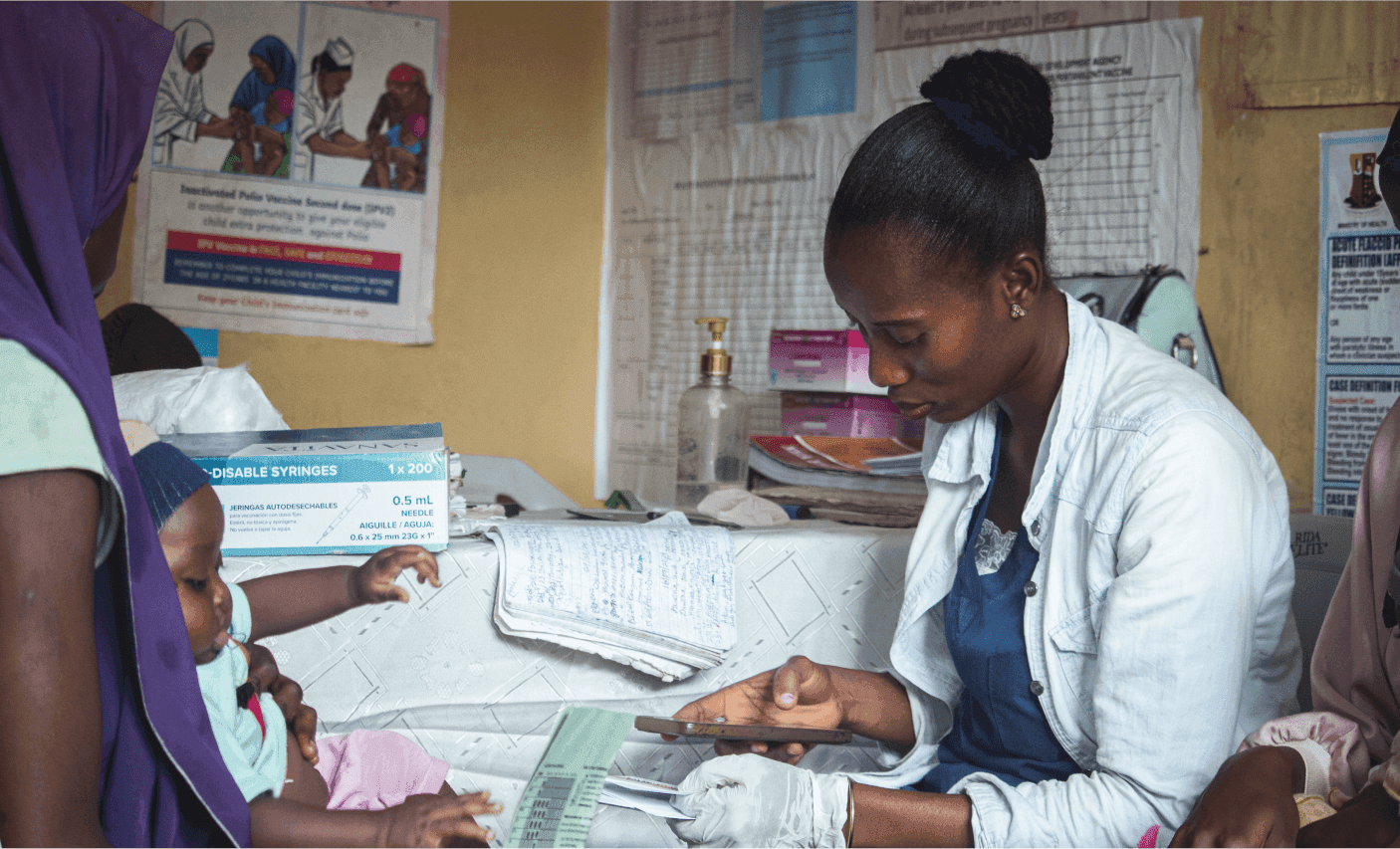Empowering Communities
In collaboration with the Sabin Vaccine Institute, our project team applied design thinking to enhance microplanning for zero-dose children and missed communities in Kano, Nigeria. Key findings showed that factors like household size, birth order, and maternal concerns about vaccine side effects impacted vaccination rates, while social support and trust in healthcare workers played a crucial role in improving vaccine uptake. Despite challenges such as gender discrimination and clinic accessibility, this approach significantly reduced zero-dose children in intervention areas and improved healthcare workers' ability to develop and update microplans, leading to better outreach and service delivery for missed communities.
"Through trust, education, and persistent engagement, we are not just delivering vaccines; we are changing lives, one community at a time, ensuring that every child, no matter the distance, has access to a healthier future."
A Design-Thinking Approach to Reducing Zero-Dose Children in Kano
In the heart of Nigeria's bustling urban slums, where the clamour of daily survival often drowns out the essential conversations about healthcare, a quiet revolution is taking place. This revolution is not driven by grand speeches or sweeping policies, but by the determined steps of community health workers, volunteer mobilisers, community leaders, and the simple yet profound principles of design thinking.
For too long, Nigeria has struggled with the challenge of zero-dose children—those who have not received a single dose of PENTA 1. The burden of this reality weighs heavily on states like Kano, where conflict, migration, gender and structural inequities create a perfect storm for the spread of preventable diseases. But amid these challenges, there is hope—a hope born from the stories of individuals like Zainab, Hadiza, Ahamad, and Ibrahim.

Zainab's First Step Towards Health
Zainab Usman's story shows how effective health facility microplans can help overcome vaccination barriers through community engagement. At just 23 months old, Zainab had never received a vaccine because her father mistrusted the healthcare system, which left her at risk for preventable diseases. The outreach team worked hard to build trust and address her father's concerns through open conversations. On 10 June 2024, after weeks of effort, Zainab received her first dose of the Measles 2 vaccine. This was not only a win for her family but also an important step in the fight against vaccine-preventable diseases in Ungogo LGA, emphasising the need for targeted outreach and strong relationships in public health work.
Hadiza: A Newborn's Lifeline
Hadiza Mukutar's journey began just hours after her birth. Born into a family with little knowledge of vaccination, Hadiza might have easily joined the ranks of zero-dose children. But thanks to the relentless efforts of our support teams and the resonating calls of town criers, Hadiza received her first vaccines—BCG, HPV, and OPV 0—at Ungogo PHC. Her story shows how important it is to follow health facility plans and carry out outreach sessions to protect children like Hadiza from preventable diseases.

Ahamad's Path to Protection
For 21-month-old Ahamad Sulieman, the road to immunisation was paved with ignorance—not neglect, but a simple lack of understanding. Through the implementation of health facility microplans, our team was able to conduct targeted outreach sessions that reached families like Ahamad's. Ahamad's receipt of the Measles 2 vaccine at Doka HP Special Outreach is a powerful reminder of how important the implementation of health facility microplans is in reaching vulnerable children.
Ibrahim: The Ripple Effect of Informed Decisions
Then there's Ibrahim Musa, an 11-month-old boy whose family didn't see the need for vaccinations. Their viewpoint shifted during our outreach sessions, where health workers conducted house-to-house visits to identify eligible children for vaccination. Ibrahim's receipt of a comprehensive set of vaccines at Panisau PHC Special Outreach is a shining example of what can happen when communities are informed and engaged. His story is not just about one child's health: it's about the ripple effect of informed decisions on the broader community.

Building Trust, Overcoming Barriers
These stories from Nasarawa and Ungogo LGAs are not isolated incidents. They are part of a larger narrative that demonstrates the effectiveness of health facility microplans in addressing the zero-dose challenge. Our work is about more than just delivering vaccines—it's about building trust, breaking down barriers, and ensuring that every child can thrive.
As we continue this journey, let us remember that the fight against zero-dose burden is not just about numbers and targets. It's about real people, real families, and real futures. Together, by empowering communities and fostering informed decisions, we can overcome the zero-dose burden and create a healthier, more equitable future for all of Nigeria's children.
In the end, the power to change lives lies not just in our hands, but in the hands of the communities we serve. Let's continue to walk these paths together, one step at a time.

Subscribe To Our Newsletters
Stay Updated with the Latest News and Events - Directly in Your Inbox!